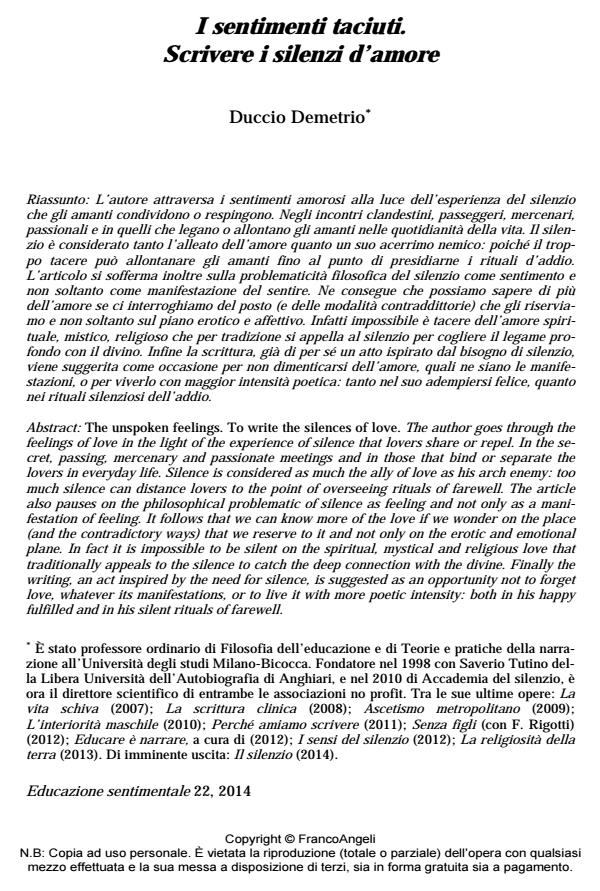I sentimenti taciuti. Scrivere i silenzi d’amore
Journal title EDUCAZIONE SENTIMENTALE
Author/s Duccio Demetrio
Publishing Year 2014 Issue 2014/22
Language Italian Pages 20 P. 62-81 File size 110 KB
DOI 10.3280/EDS2014-022006
DOI is like a bar code for intellectual property: to have more infomation
click here
Below, you can see the article first page
If you want to buy this article in PDF format, you can do it, following the instructions to buy download credits

FrancoAngeli is member of Publishers International Linking Association, Inc (PILA), a not-for-profit association which run the CrossRef service enabling links to and from online scholarly content.
The unspoken feelings. To write the silences of love. The author goes through the feelings of love in the light of the experience of silence that lovers share or repel. In the secret, passing, mercenary and passionate meetings and in those that bind or separate the lovers in everyday life. Silence is considered as much the ally of love as his arch enemy: too much silence can distance lovers to the point of overseeing rituals of farewell. The article also pauses on the philosophical problematic of silence as feeling and not only as a manifestation of feeling. It follows that we can know more of the love if we wonder on the place (and the contradictory ways) that we reserve to it and not only on the erotic and emotional plane. In fact it is impossible to be silent on the spiritual, mystical and religious love that traditionally appeals to the silence to catch the deep connection with the divine. Finally the writing, an act inspired by the need for silence, is suggested as an opportunity not to forget love, whatever its manifestations, or to live it with more poetic intensity: both in his happy fulfilled and in his silent rituals of farewell.
Keywords: Silence, feeling, writing, silent transformations, perturbing emotions, deep feeling, elusiveness, care of love, complicity, novel of training, interpretive key, happiness.
Duccio Demetrio, I sentimenti taciuti. Scrivere i silenzi d’amore in "EDUCAZIONE SENTIMENTALE" 22/2014, pp 62-81, DOI: 10.3280/EDS2014-022006